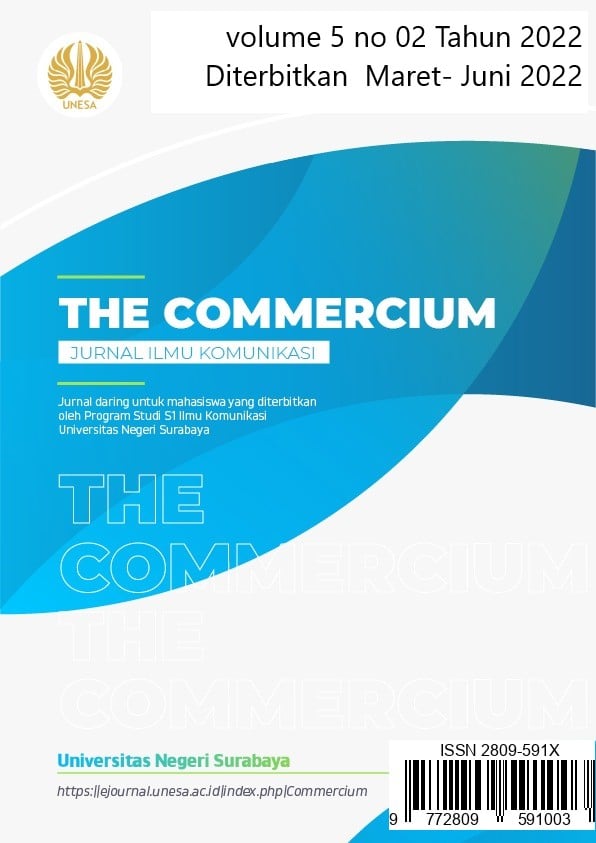Array
DOI:
https://doi.org/10.26740/tc.v5i2.47040Abstract
Changes in the audience's focus on marketing issues are increasingly different according to the context behind it. The issue of empathy is one of the issues that is good enough to be raised, especially at the beginning of the 2020 pandemic. This is because during the initial pandemic, many people lost their jobs or even many businesses went out of business due to the crisis that hit all sectors, both in Indonesia and in the world. Through Burger King's Instagram content "Order from McDonalds", the issue of empathy is highlighted and makes the audience have different interpretations of the content. The various interpretations which in this study will be discussed and resulted in 2 findings of audience types, the first is audiences who are in the hegemonic-dominant type where the reasons behind them are (1) Burger King dares to sell names, not just products, ( 2) The content is in accordance with what most people experience, (3) Burger King dares to step out of the comfort zone, and (4) Burger King also supports local products. Meanwhile, audiences who are in the negotiation type also have several supporting reasons, such as (1) the writing is still worthy of skepticism, (2) the visualization for Instagram is less attractive, (3) it looks a little embarrassing for the size of a big brand, (4) local products are not highlighted in the main. This research will also be a benchmark for the effectiveness of how empathy issues make audiences shift their focus in seeing how brands advertise. Keywords: Audience, Empathy, Instagram, Pandemic, Burger KinDownloads
Download data is not yet available.
Downloads
Published
2022-06-22
How to Cite
pramulyasari, nuraini widya. (2022). Array . The Commercium, 5(2), 67–77. https://doi.org/10.26740/tc.v5i2.47040
Issue
Section
Artikel Ilmiah IKOM
 Abstract views: 99
,
Abstract views: 99
, PDF Downloads: 318
PDF Downloads: 318

